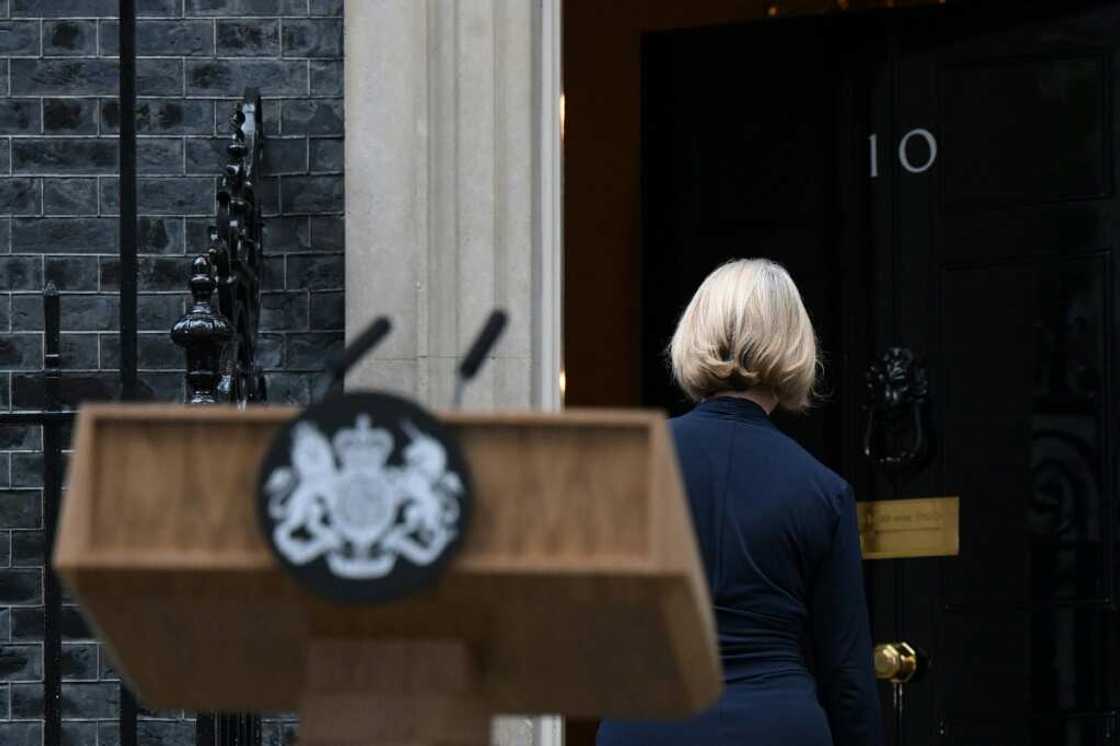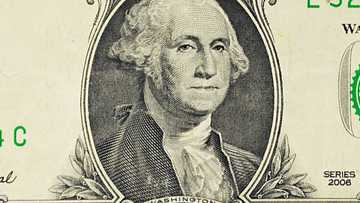UK reports further bleak economic data

Source: AFP
PAY ATTENTION: Click “See First” under the “Following” tab to see Legit.ng News on your Facebook News Feed!
UK government borrowing surged and retail sales slumped in September, official data showed Friday, dealing a further economic blow to a country in political crisis.
Public sector net borrowing stood at £20 billion ($22 billion), the second-largest September level on record, as decades-high inflation sees interest on debt repayments balloon.
Retail sales volumes tumbled 1.4 percent as sky-high prices curbed consumer purchasing. The figure was better, however, than the 1.7-percent slide in August.
The data comes one day after Prime Minister Liz Truss resigned in the wake of markets turmoil triggered by her budget of tax cuts funded by debt.
The public borrowing figure exceeded analysts' consensus of £17.2 billion, which was already far above the government's own prediction.
"The weakness in retail sales and further overshoot of the... (government) public borrowing forecast won't make the next prime minister's task any easier in navigating the economy through" various crises, concluded Ruth Gregory, senior UK economist at Capital Economics.
PAY ATTENTION: Сheck out news that is picked exactly for YOU ➡️ find the “Recommended for you” block on the home page and enjoy!
Interest payments on government debt surged to £7.7 billion in September, "largely reflecting the broader economic environment of soaring inflation", noted CEBR economist Pushpin Singh.
Government borrowing is linked to the wider RPI measure of inflation, which stands at a huge 12.6 percent in Britain.
Next PM
Contenders bidding to succeed Truss on Friday opened a hectic weekend of campaigning, but opposition parties demanded that UK voters get their own say to end months of political chaos via a general election.
Truss succeeded Boris Johnson on September 6 after a weeks-long campaign against Tory rival Rishi Sunak, who is now a favourite to take over in the coming days.
Former finance minister Sunak had warned in the battle to succeed Johnson that tax cuts promised by Truss when government debt had already soared on Covid interventions was the wrong policy to pursue.
He was proved right as the budget sent the pound crashing to a record-low close to parity with the dollar and triggered yields on government bonds to soar.
That caused Truss to U-turn on most of her planned tax cuts, ultimately costing her the job of prime minister.
On Friday, sterling slid one percent against the dollar, before recovering slightly, while the yield on the British government's 30-year bond climbed back above four percent.
"Uncertainty in British politics remains rife, which will do little to inspire confidence in UK assets," said Matthew Ryan, head of market strategy at global financial services firm Ebury.
Separate data Friday showed British consumer confidence stuck near historic lows despite a slight improvement this month.
GfK's Consumer Confidence Index rose two points to minus 47.
Source: AFP




